Post-Traumatic Stress Disorder (PTSD) is a mental health disorder that can affect anyone who has experienced a traumatic event. It is essential to understand and recognize the symptoms to seek appropriate help. Here are five common symptoms of PTSD:
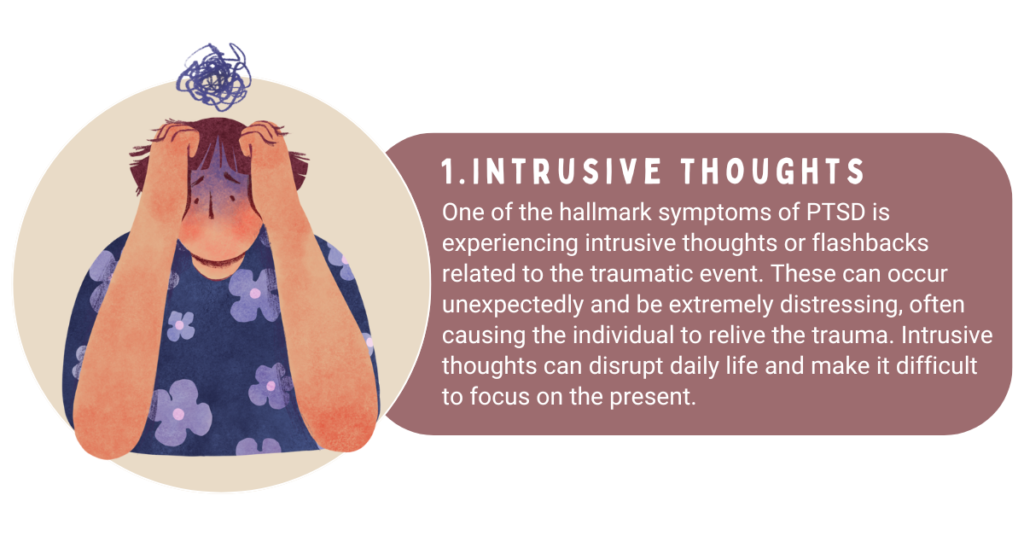
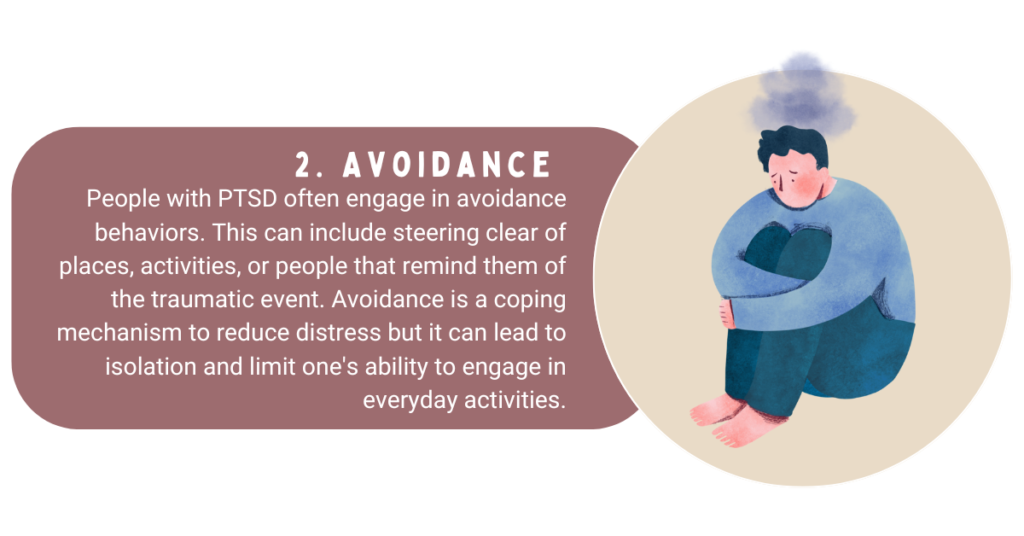
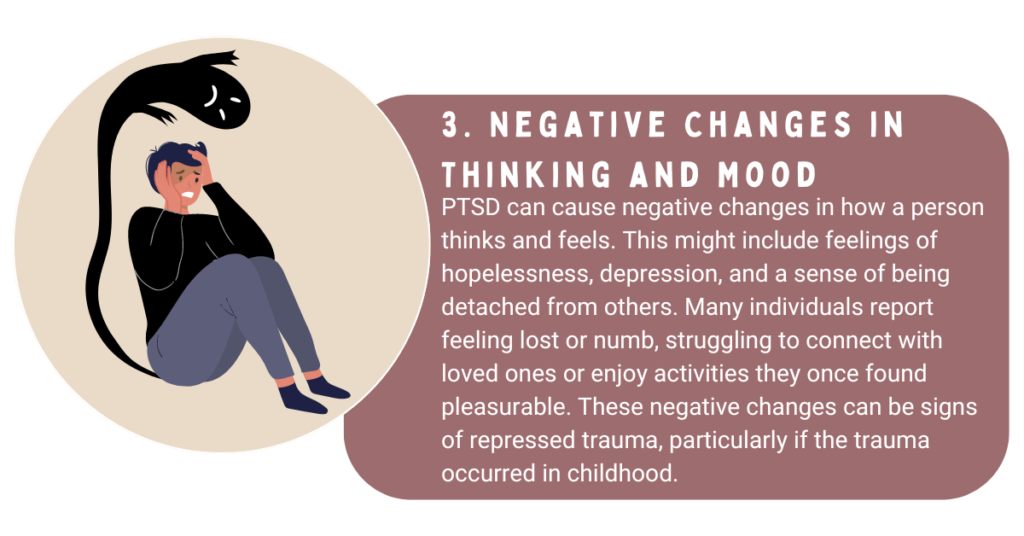
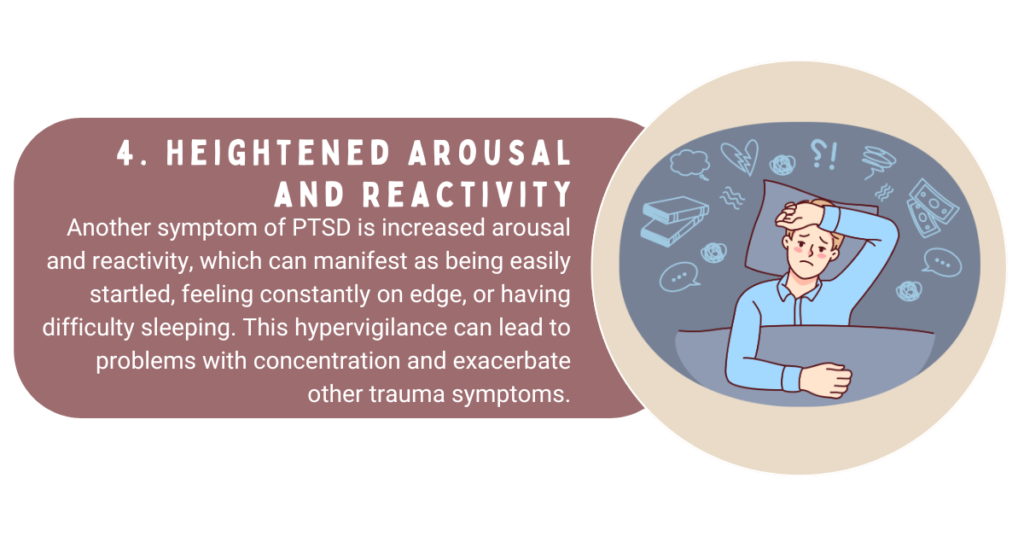
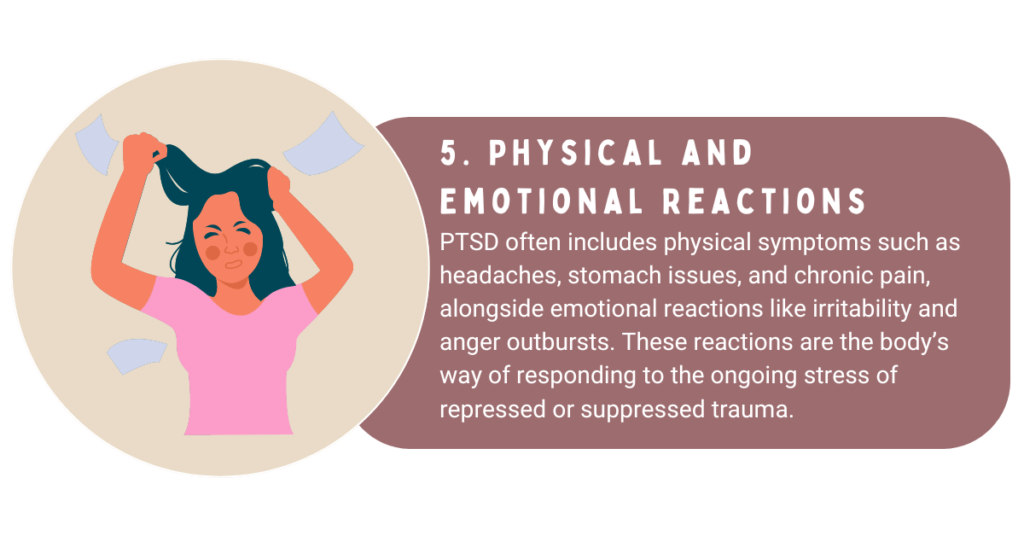
Trauma symptoms can vary widely but commonly include anxiety, depression, and feelings of being overwhelmed. Symptoms of repressed trauma, especially from childhood, can resurface in adulthood, leading to issues like anxiety, depression, and even physical health problems. Childhood trauma in adults can manifest as difficulty forming relationships, trust issues, and persistent feelings of fear or shame.
PTSD can also involve a difficulty regulating emotions, making it harder to manage stress responses, recover after emotional triggers, or respond proportionately in everyday situations.
Recognizing and addressing PTSD symptoms is vital. Treatment options, such as therapy and medication, can significantly improve the quality of life for those affected. Early intervention is essential for children to prevent long-term consequences and promote healthy development.
In conclusion, understanding the symptoms of PTSD and the impact of repressed trauma is crucial for seeking appropriate treatment and support. If you or someone you know is experiencing these symptoms, it is important to reach out to a mental health professional for help.
By recognizing and addressing these trauma symptoms, individuals can begin the journey toward healing and recovery. At PRI Treatment Center in La Jolla, CA, we offer comprehensive treatment options to support individuals dealing with PTSD and other mental health disorders.
For more information on PTSD and available treatment options, visit our website or contact us today.